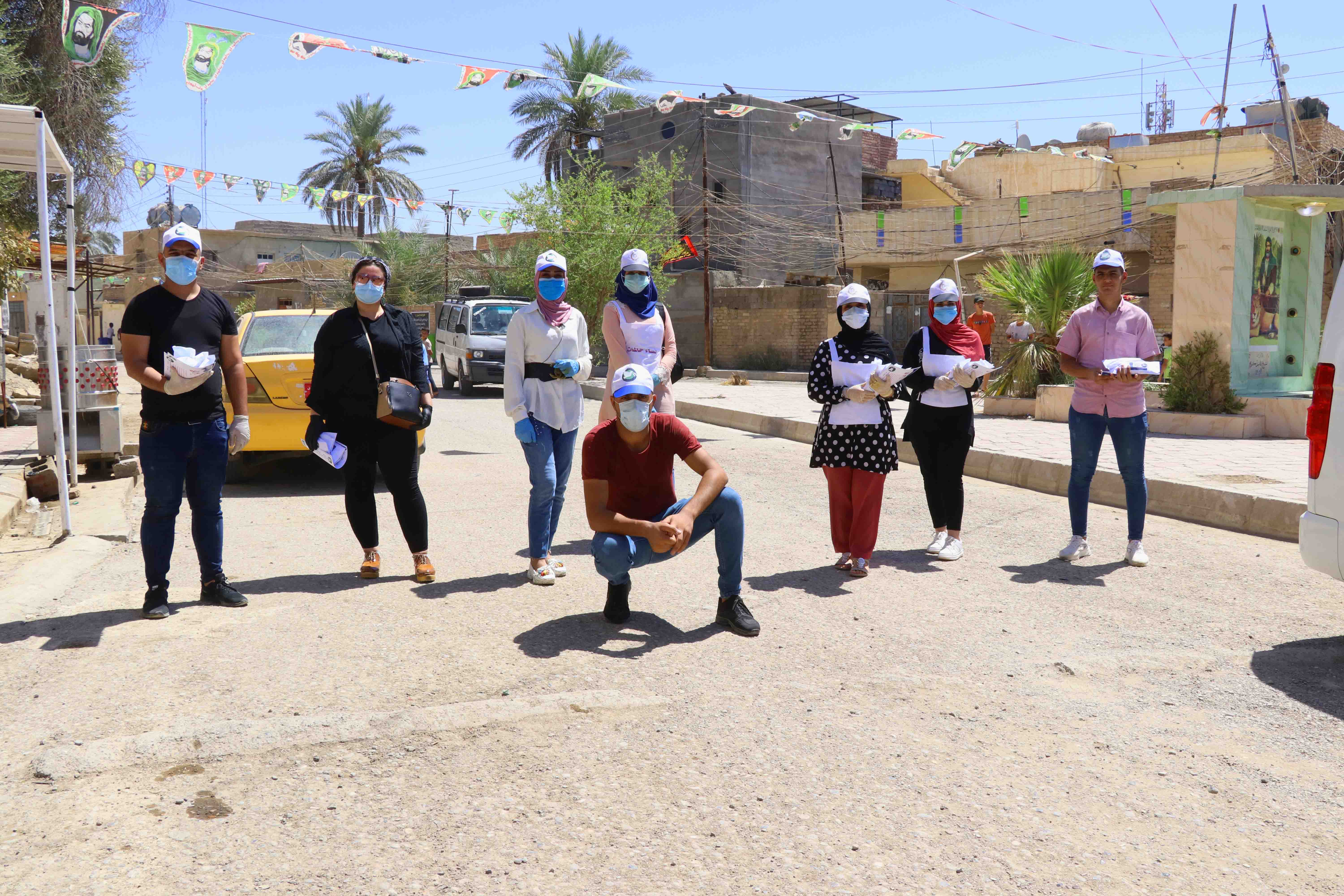Asia (left) and Mariam (right).
While women in Iraq are often unrepresented in many boardrooms and welcomed in more traditional roles, signs of progress with respect to gender representation in leadership positions are becoming more prominent. Through supporting the formation of Youth and Women for Peace groups in Iraq, UNDP has observed the power of the Iraqi woman in motivating groups of youth to create change and build the foundation for a better future.
Asia, leader of the Diyala Youth for Peace Group, and Mariam, group member, discuss their background, goals, and advice for Iraq’s future women leaders.
What are your professional aspirations?
Asia: I want to be a Member of Parliament.
Mariam: I have a Bachelor of Physics and I and want to be a business owner.
Were you always interested in leadership and helping others?
Asia: No. When I was younger, I was subject to domestic violence and this has changed my view of the world and how I feel about life and helping others.
Mariam: No. When I was 21, I suffered from physical and mental problems that made me seek change. I needed medical help and I didn’t want to put more responsibility on my middle-class family, so I decided to take charge and be strong to help myself.
Asia speaks during a meeting with representatives from all Youth & Women for Peace Groups in 2021.
You are involved with the Diyala Youth for Peace Group supported by UNDP Iraq. How has your experience been in working with other youth in Diyala Governorate?
Asia: I have my own volunteer group called Dreaming Women, which is a women-only team. The traditions and culture in Diyala make it so that women are not able to communicate with men easily. My focus was on working with young women while I waited for the chance to work with both genders. I spent three years working only with women and then the opportunity came to form the youth group supported by UNDP. I felt that society had evolved to a more suitable environment for both genders to work together, and I am now the founder and leader of the Diyala Youth for Peace Group.
Mariam: I started to work as a volunteer in 2014 as the only female in an all-male group. With my family’s support I managed to overcome many obstacles regarding how society viewed my working with only men. If you compare 2020 to 2014, Diyala has evolved a lot and it is more accepted for women to work among men. The needs associated with the COVID-19 pandemic have encouraged women to step up and volunteer more in their communities.
Mariam presents during a meeting with representatives from all Youth & Women for Peace Groups in 2021.
What is your advice for young women who want to be leaders in Iraq?
Asia: Volunteerism is important in society and it should be taught as a concept from early childhood. However, women need to be aware that there are some men who may act open-minded but not be as supportive as they seem. I always support women leadership and volunteerism but I advise women in Iraq to be cautious and look out for themselves. Volunteerism is a great way for women to flourish in society.
Mariam: There are two things for women to work on if they want to be future leaders. First, she must build confidence in herself, and second, she must encourage her family to trust her. I believe that we must convince our family that we are doing the right things and have confidence that our work will not put us in harm’s way. Women should support each other and my advice is to find another woman who will advocate for you when you face challenges.
Iraq is such a land rich in culture and resources, but it has faced many years of hardship and war. What is your vision for the future of Iraq?
Asia: I see a positive future for Iraq. The most powerful group in our society is youth. If youth are empowered and participate in the decision-making process, they will be the engine of a new society.
Mariam: This is a three-part answer. We need true freedom of speech and expression, for all Iraqis to accept each other regardless of their background and differences and for youth to have a true role in the decision-making process. With all of these, Iraq has a bright future.
The Diyala Youth for Peace Group during distribution of COVID-19 awareness material and Personal Protection Equipment in 2020.
Youth and Women for Peace Groups are supported by the Government of Denmark.

 Locations
Locations








